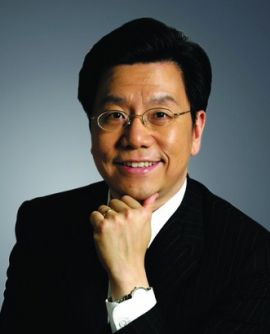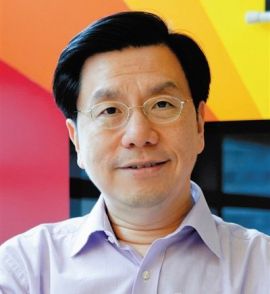Kai-Fu Lee
Kai-Fu Lee (李开复) is an information technology executive and computer science researcher currently serving as the chief executive officer of Innovation Works, a venture capital fund. He also served as the president of Google China.
In October 2011, the English version of Lee’s autobiography "Making a World of Difference," thrust him into the center of a dispute with Fang Zhouzi, a scholar renowned for exposing academic fraud. Fang, whose real name is Fang Shimin, said he found inconsistencies between Lee’s Chinese and English autobiographies. In the Chinese version, Lee claimed that when he joined the faculty at Carnegie Mellon University, he was the youngest associate professor at in the school’s history. In the English version, however, he said he was the youngest assistant professor – a non-tenured probationary position more commonly held by recent graduates. "Professor Lee understands it is only the Chinese that he can brag to," Fang said in a post on his Weibo account.
In response to Fang’s criticism, Lee posted a copy of his letter of appointment from Carnegie Mellon University on Nov 29, admitting that the title had been mistranslated. Lee said he was in fact the school's youngest assistant professor, not an associate professor, and promised to correct the information in the Chinese version.
Born on December 3, 1961, in Taiwan, Lee is the son of Tien-Min Li, a legislator and historian from Sichuan Province. In 1973, Lee was admitted to high school in Oak Ridge, Tennessee, after immigrating to the United States. Ten years later, he earned a B.S. degree in computer science from Columbia University. In 1988, he gained a Ph.D. in computer science from Carnegie Mellon University.
Upon his graduation, he served two years as a faculty member at Carnegie Mellon University, and then joined Apple Computer in 1990 as a research and development executive. In 1996, he moved to Silicon Graphics, where he worked as president of one of their software programs.
In 1998, he moved to Microsoft and was sent to Beijing to build the local branch of Microsoft Research, known as MSR China, which was later expanded to MSR Asia. In 2000, Lee returned to the United States and served as vice president of interactive services at Microsoft until 2005 when Google tried to hire him, sparking a legal dispute between the two IT giants over a one-year non-compete agreement in his contract with Microsoft.
The spat ended with Lee's appointment as the founding president of Google China in July of the same year. On Sept. 4, 2009, Lee resigned from Google.cn, a few months ahead of the mammoth searching giant’s decision to redirect Google.cn visitors to its Hong Kong] site Google.hk.
On Sept. 7, 2009, three days after his resignation from Google, Lee announced the details of an US$115-million venture capital fund called "Innovation Works," aimed at fostering successful Chinese start-ups in the internet, mobile internet and cloud computing businesses. His role as an investor and mentor has garnered him a wide following in China’s IT sector. By the end of November 2011, his account on the Twitter-like microblogging platform Sina Weibo had attracted more than 13 million followers.
In 2013, Kai-Fu Lee was placed in the Time annual list of the 100 most influential people in the world, with the number of Sina Weibo fans exceeding 40 million.
On Sept. 6, 2013, Kai-Fu Lee confirmed on Weibo (Chinese version of Tweet) that he has been diagnosed with lymph cancer. Many netizens have expressed their concerns for his health and wished him recover soon.
On Oct. 21, 2013, Kai-Fu Lee revealed the state of his illness on his Weibo, saying "the effect of chemotherapy is not very obvious."
Lee is married with two daughters.

